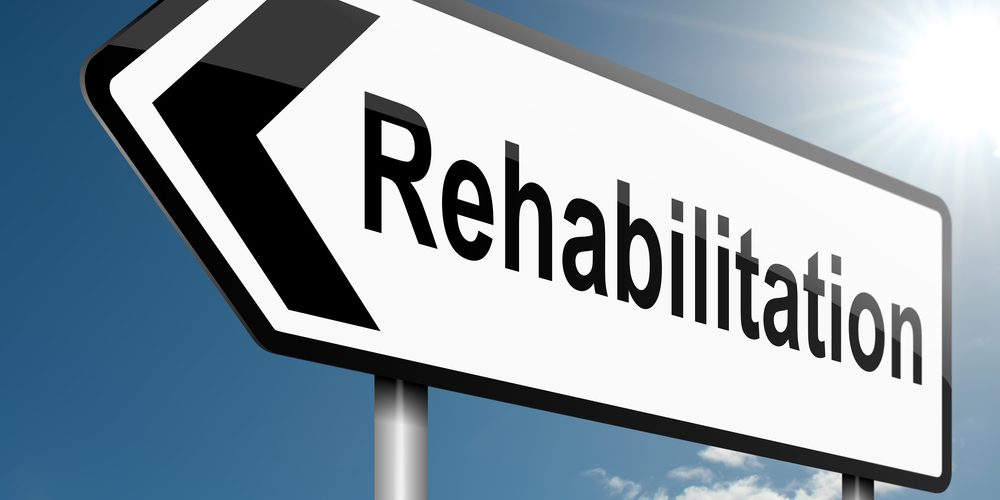Struggling with addiction and seeking help? NHS rehab offers free, essential support for recovery. Learn who’s eligible, what treatments you can receive, and how to access these services, all while facing common obstacles like waiting times. With this guide, take clear steps towards the help you need through NHS rehab—your pathway to healing.
Key Takeaways
NHS rehab services offer free addiction treatment, including detox programs and therapy, but face long waiting times and limited inpatient spots, potentially pushing individuals to seek private treatment options.
Private rehab options, such as The Perry Clayman Project (PCP), provide comprehensive and personalized care with a holistic approach to address both physical symptoms and underlying emotional causes of addiction.
Recovery is a long-term process necessitating ongoing support; both NHS and PCP offer aftercare services, and support groups like AA and NA play critical roles in sustaining long-term sobriety post-treatment.

Understanding NHS Rehab Services
When addressing addiction, the National Health Service (NHS) provides a spectrum of rehab services, including both inpatient and outpatient options, at no direct cost to patients. This approach aligns with the NHS’s overarching healthcare model, which aims to eliminate financial barriers to essential care for eligible UK residents(nhs.uk).
To tap into these services, an initial evaluation is usually made by a General Practitioner (GP). The GP can issue referrals to local drug recovery services tailored to the individual’s specific requirements. Alternatively, individuals have the option to self-refer directly to local drug treatment services, bypassing the GP assessment if they prefer (nhs.uk).
Accessing NHS funded rehabs can be challenging due to strict eligibility criteria and funding limitations. Individuals must undergo a thorough assessment to determine their eligibility, and the application process can be complex, varying by location.
While the NHS does not typically provide residential rehab directly, referrals for such treatment are generally directed to private clinics. In some cases, this can be made available at no cost or for a subsidized fee. However, eligibility for free or subsidized private residential treatment is subject to the policies of the local trust and the availability of funds, which can vary widely (UK Addiction Treatment Centres) (Help4Addiction).
While the NHS rehab system offers invaluable support, it does face significant challenges, such as extended waiting times and a limited number of inpatient treatment opportunities. These constraints often lead individuals to explore alternative options in private treatment, particularly when urgent or specialized care is required.
In essence, the NHS plays a vital role in addiction recovery by offering a range of treatments from medication management to talking therapies, such as cognitive behavioural therapy (CBT). Nonetheless, the system is constrained by funding and resource availability, which can influence the promptness and accessibility of treatments (nhs.uk).
Medically Assisted Detoxification Programs
Embarking on the path to recovery from drug and alcohol addiction, individuals encounter the crucial stage of detoxification where their bodies are cleansed of toxins. During this delicate period, the NHS acts as a pillar of support, offering programs tailored for safe and monitored withdrawal from substances. Patients have access to both inpatient and outpatient services within these programs, which provide medical assistance throughout.
In facing opioid addiction, patients can turn to specialized NHS detoxification initiatives that offer critical intervention for managing severe withdrawal symptoms resulting from drug cessation. These initiatives encompass medical detox procedures and treatment sessions facilitated by healthcare professionals who compassionately steer individuals through early stages fraught with challenges along their journey toward recovery.
However, the UK faces a shortage of these essential services. For example, the NHS Inpatient Unit (IPU) programme which offers 24-hour medically managed detox services. However, there are only 7 of such facilities in the UK, which adds up to less than 100 beds. Similar to many aspects of the NHS, one of the major challenges faced by these facilities is chronic underinvestment.
Therapy and Counselling
Navigating through the mental and emotional complexity of addiction, NHS rehab services shine a light on the path to recovery with an array of therapeutic measures. Central to these services is group therapy, which provides a supportive environment for communal exchange and growth. Complementing this is one-on-one counselling that adapts to each person’s unique needs and journey towards health.
Within the scope of NHS treatment offerings there is an integration of drug treatments alongside talking therapies such as Cognitive Behavioural Therapy (CBT). This multifaceted strategy formulates a wholistic treatment approach catering both to habitual aspects of addiction, withdrawal symptoms and the mental health underpinnings of addiction, thereby championing a comprehensive approach toward recovery.
Aftercare and Support
The process of recovery is an extended journey, which requires consistent support and direction. Aftercare services offered by the NHS act as a guide along this route, providing access to local community services, group therapy sessions, and a broader network of assistance that extends beyond the confines of rehabilitation facilities. During this phase individuals are supported by dedicated support personnel who help them coordinate the diverse treatment options of after care and help monitor their progress during reintegration into society.
Local support groups also play a crucial role in bolstering recovery efforts by assisting individuals in dealing with stressors effectively, identifying potential triggers for relapse early on and managing cravings. For those who prefer non-religious avenues towards sobriety, they can look into entities such as Secular Organizations for Sobriety which endorse self-empowerment methodologies focusing on personal accountability within sober living endeavours.
The Role of PCP in Addiction Treatment

The Perry Clayman Project (PCP) reinforces the foundational support for addiction treatment provided by the NHS, with an array of comprehensive programs. These integrate multiple treatments such as holistic therapies, the 12 Step recovery model, Cognitive Behavioural Therapy (CBT), and individualised counselling.
Beyond administering safe and confidential medical detoxification, PCP recognizes drug or alcohol addiction as a multifaceted disorder that necessitates ongoing oversight.
With this understanding at its core, PCP dedicates itself to a holistic and individually tailored approach. Their strategy ensures not only are root causes of addiction addressed, but also cultivate enduring success in each person’s journey to recovery.
PCP's Holistic Approach
The treatment strategy at PCP extends beyond merely alleviating the physical manifestations of addiction. It includes devising personalized care plans that align with each individual’s distinct history and triggers, fostering both mental and emotional restoration. At the heart of this approach are evidence-based therapeutic practices such as cognitive behavioural therapy (CBT) and mindfulness techniques, which empower clients to confront emotional obstacles while gaining a more profound understanding of their addiction.
In pursuing recovery, it is crucial to also focus on revitalizing the body. To facilitate this aspect at PCP, an array of wellness activities including meditation, yoga, and controlled breathing exercises highlight the critical role stress management plays in overcoming addiction. By integrating proper nutrition and physical activity into their regimen, PCP not only helps restore diminished physical health, but also actively promotes improved mood states and motivation levels—elements essential for a holistic path toward healing from addiction.
Locations and Accessibility
PCP is steadfast in its commitment to making treatment readily available, operating centres in numerous locales including Luton and Bedfordshire. This ensures that people throughout the UK have convenient access to the assistance they require. The center in Luton is notably designed for recovery, offering supported living arrangements which aid individuals on their journey towards a life of sobriety.
The distinguished facility excels at providing personalized care, with a focus on serving clients who face multiple challenges simultaneously, such as those dealing with dual diagnoses or concurrent conditions like eating disorders.
Complimentary Aftercare for Life
PCP’s unwavering commitment to long-term recovery for their patients is evident not only during the primary phase of addiction treatment but also well after. Individuals who finish their rehab program are provided with an all-encompassing support system, which offers weekly group meetings alongside individualized support services—clear evidence of PCP’s investment in sustained sobriety. Such persistent assistance, characteristic of private residential rehabs, plays a significant role in elevating success rates for those recovering from addiction. It underscores the importance of rigorous and continuous care throughout the path to recovery.
Comparing NHS Rehab with Private Rehab Options

Recovery from addiction can be pursued via different routes, including NHS and private rehab services. The NHS offers essential treatment at no cost, ensuring that every resident in the UK has an opportunity to embark on a recovery journey regardless of economic status. On the other hand, although payment is necessary for private rehab treatment, they typically provide faster access to their services along with a broader selection of treatments and more luxurious accommodations.
This contrast highlights the balance between accessing complementary yet potentially limited resources through NHS rehab and obtaining immediate and expansive, albeit expensive, services from private rehabilitation options.
Advantages of NHS Rehab
Individuals grappling with addiction have the benefit of accessing treatment through the NHS, which offers primary care at no cost. This allows those on their recovery journey to focus on getting better without undue financial stress. For some patients, there’s a possibility of obtaining full or partial funding from the NHS to cover private rehab services. Such partnerships between private rehabs and the NHS make specialized treatment options more accessible.
As patients progress beyond initial treatments provided by the NHS, they may qualify for secondary care options that enhance their support network throughout recovery. Facilities like Castle Craig are available. This commitment connects individuals who’ve completed treatment with free organizations and support groups focused on sustaining long-term addiction recovery.
Limitations of NHS Rehab
Despite its extensive scope and noble goals, NHS rehabilitation services face critical challenges. Notably, lengthy waiting lists due to increased demand coupled with reduced funding lead to a shortage of available spots for those requiring assistance. This is especially disastrous for patients with serious conditions who experience detrimental effects when treatment is delayed, for example those experiencing acute withdrawal.
The limited resources within the NHS hinder the provision of customized care, often resulting in less one-on-one attention and fewer treatment options when compared to private facilities.
Also, navigating through the complex care system of the NHS often discourages many people from seeking help, even when they do not have access to private facilities. Adults in need of drug and alcohol treatment services encounter daunting obstacles as they navigate through the NHS such as long waiting lists, numerous red tape and excessive bureaucracy.
Recurrent strikes among healthcare workers is another challenge faced by the NHS. This leads to disruptions in services, cancelled appointments and longer waiting times for those who may desperately need these services.
When to Consider Private Rehab

It’s critical to act swiftly in tackling addiction, given its tendency to worsen quickly and reduce the chances of individuals reaching out for help. When immediate treatment is essential and particular services or care options are lacking within NHS services, considering private rehab becomes necessary. Private rehabilitation facilities provide a valuable option for those seeking immediate support, allowing them to avoid the extensive waiting lists associated with the NHS and start their journey towards recovery without delay. Yet accessing private inpatient rehab through the NHS can be daunting due to strict eligibility requirements and a complicated application procedure.
Navigating the NHS Rehab Application Process
Starting the process of getting into NHS rehab services for drug or alcohol addiction is similar to navigating a maze, where knowing what’s in store is extremely beneficial. It all starts with recognizing that addiction is indeed a serious health condition and consulting with a GP, who will evaluate the severity of the drug or alcohol dependency and can issue referrals to relevant rehab services within the NHS framework. While this first move is essential, it marks just the beginning of what might unfold into an extended and intricate journey towards rehabilitation due to potentially long waiting lists that could delay treatment from months up to even years.
Speaking with Your GP
During an initial consultation, the GP evaluates the patient’s circumstances related to their drug and alcohol use as well as their general health. This assessment by the GP is crucial in laying down the groundwork for accessing NHS rehab services.
To supplement this, local drug and alcohol services conduct a thorough appraisal to ascertain that each treatment plan aligns with the specific requirements of the individual seeking help. This ensures that every aspect of treatment is carefully considered and personalized for optimal effectiveness.
Referrals and Assessments
Following the completion of a primary evaluation by a GP, securing referrals and undergoing subsequent assessments are critical steps in progressing through the application sequence. The duration one might expect to wait for these rehab services is subject to fluctuation and can extend considerably. This disparity stems from differing levels of local service demand, resource availability within the NHS, and the nature of treatment sought. Such variability highlights why it’s crucial to regulate expectations and remain steadfast when navigating through this process.
It’s important to recognise that eligibility criteria for access to NHS rehab services are not universally standardized—thus the need for an individualised assessment with a GP who can ascertain whether one qualifies for rehabilitation treatments.
Managing Expectations
Embarking on the recovery journey through NHS-funded rehab can be a test of patience and dedication, recognizing that hurdles may occur. Should an initial request for NHS rehab funding not bear fruit, there remains the opportunity to reapply and potentially secure the crucial aid required. Meanwhile, one might consider other available resources including complimentary drug and alcohol services provided by charities as well as participation in 12-step support groups which offer critical support during the waiting period for NHS treatment.
Keeping expectations grounded while diligently seeking out all possible options is essential to sustaining forward movement towards recovery.
Enhancing Your Recovery Journey with Local Support Groups
During the challenging climb toward recovery, continuing support is vital. Local support groups act as important rest stops where individuals can find solace and community. These support networks are indispensable for nurturing long-term sobriety, providing a space to exchange stories, share coping strategies and draw inspiration from peers who understand their battles. Offerings such as PCP’s aftercare combines local group sessions and keyworker guidance, ensuring that one’s rehabilitative journey is unbroken and smooth at every point.
The structured environments offered by these local support groups create a trajectory toward improvement and responsibility. Such gatherings often involve setting objectives alongside social events which play a significant role in aiding individuals to sustain their abstinence while adeptly managing the complicated path of recuperation ahead of them.
Alcoholics Anonymous and Narcotics Anonymous
Amid the array of support groups available for addiction, Alcoholics Anonymous and Narcotics Anonymous stand out as beacons of hope. With a focus on aiding those who are striving to break free from drug addiction, these programmes anchor their members in the 12-step program’s principles that help achieve and uphold abstinence. In this journey towards sobriety, members gain support by partnering with sponsors—individuals who have successfully navigated their own recovery from alcohol addiction—and can provide mentorship and reinforcement when the urge to relapse into drug use intensifies.
The adaptability exhibited by both NA and AA is one of their major assets. They host meetings across the globe in various settings, including virtual spaces, which enhances accessibility for individuals wherever they may be located.
Summary
Navigating the recovery journey from addiction is challenging yet filled with promise for a new beginning. The NHS along with entities such as PCP, provide various rehab services that pave the way towards a more wholesome life without reliance on substance dependence. Although indispensable, NHS services might present certain constraints that demand patience and commitment to overcome. Augmenting this support with targeted treatment options available at private rehab facilities and drawing strength from local support groups can create an all-encompassing network of care. This integrated approach ensures individuals battling addiction are equipped with every possible advantage to regain control over their lives.
Frequently Asked Questions
What are the initial steps to accessing NHS rehab services?
Begin by recognising addiction as a medical condition to utilize NHS rehab services and consult with your general practitioner for evaluation and direction to the appropriate drug or alcohol rehabilitation services offered by the NHS.
What limitations might one encounter with NHS rehab services?
When utilising NHS rehab services, you may face significant waiting times and find it particularly challenging to access drug rehab services due to long waiting lists for NHS drug rehab. These services might offer limited customization to meet individual needs, especially when it comes to accessing specialized services like medical detox, which is crucial for managing severe addiction cases.
Such constraints can adversely affect both the caliber and efficacy of the treatment delivered through these rehab services. The difficulty in accessing residential rehab options is further compounded by the limited nhs rehab funding available, making it harder for individuals to find the support they need. Additionally, the limitations of NHS rehab services in effectively managing withdrawal symptoms can significantly impact the recovery process, highlighting the need for comprehensive care that includes medical supervision during detox.
Why are local support groups important in the recovery journey?
Support groups within the local community play a vital role in an individual’s journey towards recovery by offering continuous support and fostering a communal atmosphere. Alongside these groups, alcohol services and drug and alcohol services form a crucial part of the support network, providing comprehensive care and treatment options for those in need. They provide organized environments for setting objectives and engaging in social events, which are crucial elements that assist individuals in sustaining their sobriety and navigating their recovery with greater efficacy. For individuals battling drug or alcohol addiction, these groups are indispensable, offering access to drug treatment and private drug treatment options, and facilitating treatment sessions that are vital for recovery.
Authors
-
Perry is the founder of Rehab Today by PCP and opened the first treatment centre at Luton in 2004.
Perry’s background apart from his own personal struggle with addiction over 20 years ago is in the recruitment industry where he started his career and became Finance Director of a UK PLC and in the late 90’s was part of a new start up and became the leading recruitment consultancy in Intellectual Property across Europe.
Perry is passionate about recovery from addiction and liaises with family members to coordinate admissions, often sharing his own experience to help people when they first admit into treatment. Most certainly the driving force behind the success of Rehab Today by PCP which now boasts 60 primary and 68 move on beds in all locations. Perry is a keen fitness fanatic and Arsenal fan!
View all posts
-
Dr Otulana is PCP’s longest-serving doctor. He is an experienced Physician with Specialist Interest in Substance Misuse Management and he has a wide range of experience in the assessment and management (including detoxification) of clients with various drug and substance addiction problems. Dr Otulana started practising as a doctor in 2000 and with over 10 years as an Addiction Physician. He is an Advanced Addiction Practitioner Member of Addiction Professionals and also holds the Certificate in Clinical Psychopharmacology (Part 1) of the British Association for Psychopharmacology. He is additionally a strong healthcare services professional with a Master of Business Administration (M.B.A.) degree from Cambridge University Judge Business School.
View all posts









